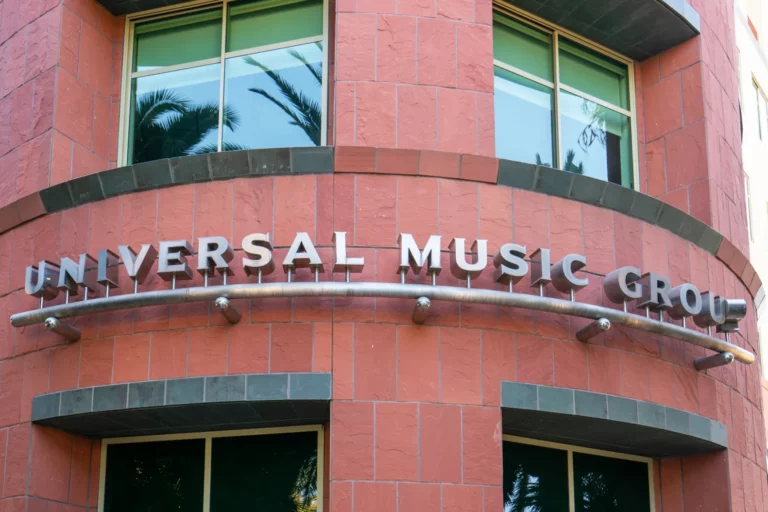
In a groundbreaking legal battle, Universal Music Group, along with Concord Publishing and ABKCO Music & Records, is suing the AI startup Anthropic for allegedly copying and sharing a substantial amount of copyrighted music. This lawsuit brings to the forefront a critical issue in the age of artificial intelligence and machine learning – the boundaries of creativity and the protection of intellectual property. The implications of this case are far-reaching, with the potential to redefine the relationship between technology, music, and copyright law.
The Allegations: What’s at Stake?
The crux of the matter is the claim that Anthropic, an AI startup known for its cutting-edge work in artificial intelligence and machine learning, has allegedly been engaged in copying and sharing copyrighted music without proper authorization. Universal Music Group, Concord Publishing, and ABKCO Music & Records, three industry giants with a vast catalog of music, assert that Anthropic’s activities infringe upon their copyrighted material.
This legal action raises a myriad of questions. Can artificial intelligence truly appreciate the value of creative works, or does it merely mimic what it has been trained on? Are these allegations a reflection of the challenges in regulating the digital era, where the lines between inspiration, innovation, and imitation are blurred? Furthermore, what are the potential consequences for AI companies if these allegations hold true? These are just some of the questions that this lawsuit will seek to answer.
The Genesis of AI and Music
Artificial intelligence and music have shared an increasingly symbiotic relationship in recent years. AI has been employed in the creation of music, from algorithmic compositions to AI-driven lyric generation. Platforms like Jukedeck and Amper Music have ventured into the realm of music composition, while streaming services like Spotify have used AI to curate personalized playlists for their users.
However, this isn’t the first time that such advancements have raised eyebrows in the music industry. In 2015, a dispute arose when a music composition created by AI was submitted for copyright protection. The legal response was to deny the claim, arguing that a machine lacked the creative intent necessary for copyright protection. This lawsuit against Anthropic now brings these concerns back into the spotlight, prompting a reevaluation of the copyright framework in the context of AI.
The Legal Battlefield
Universal Music Group, Concord Publishing, and ABKCO Music & Records have come together in this legal battle, presenting a united front against Anthropic. They allege that the AI startup used copyrighted materials without proper licensing, thereby infringing upon their intellectual property rights. This lawsuit is not merely about monetary compensation; it’s about the protection of creativity and the foundation of the music industry.
The legal strategy of the plaintiffs revolves around the concept of fair use, which allows limited use of copyrighted material without permission for purposes such as criticism, comment, news reporting, teaching, scholarship, and research. However, it’s contended that Anthropic’s use of the copyrighted music exceeds the boundaries of fair use and constitutes unauthorized replication and distribution.
The AI Dilemma
At the heart of this legal clash is the contentious issue of AI’s role in the creative process. Does the use of AI to generate music infringe upon copyright, or is it a legitimate tool for artists and creators to explore new horizons? The complexity of this matter stems from the blurred lines between human and machine creativity.
Anthropic claims that its AI algorithms are designed to learn from a vast dataset of music, including both public domain and copyrighted material. The AI then generates compositions that are inspired by the patterns and styles it has learned. The question that arises is whether this process constitutes infringement or merely technological emulation.
Implications for the Music Industry
The outcome of this lawsuit will undoubtedly have significant implications for the music industry and beyond. If the court rules in favor of Universal Music Group, Concord Publishing, and ABKCO Music & Records, it could set a precedent for future cases involving AI-generated content. This might force AI startups to adopt stricter compliance measures to avoid copyright infringement claims.
On the other hand, if Anthropic prevails, it could signify a shift in the way AI and creativity are perceived. It may lead to a broader acceptance of AI as a creative tool and encourage further innovation in the field. This could open the door to a new era of music creation, where AI collaborates with artists and composers, leading to novel and exciting music compositions.
The Future of Copyright in the AI Age
As AI technology continues to evolve, the legal frameworks that govern it must adapt accordingly. The current case between Universal Music Group, Concord Publishing, ABKCO Music & Records, and Anthropic will be a litmus test for the courts to determine the extent to which AI can mimic creative processes without infringing on copyright.
This lawsuit will be closely watched by AI developers, artists, and legal experts as it has the potential to set a precedent that reshapes the boundaries of intellectual property law. It raises fundamental questions about the essence of creativity, the role of technology, and the evolving relationship between humans and AI in the creative process.
Conclusion
Universal Music Group, along with Concord Publishing and ABKCO Music & Records, is suing the AI startup Anthropic for allegedly copying and sharing a substantial amount of copyrighted music. This lawsuit serves as a battleground where the rights of creators and the capabilities of artificial intelligence clash. The outcome will undoubtedly have a lasting impact on the music industry and the future of AI’s role in creative processes.
The ultimate verdict in this case will redefine the boundaries of copyright in the age of AI, shedding light on the extent to which technology can mimic human creativity without crossing legal lines. Whatever the outcome, the case of Universal Music Group, Concord Publishing, ABKCO Music & Records, and Anthropic will be remembered as a pivotal moment in the evolving relationship between creativity and artificial intelligence.